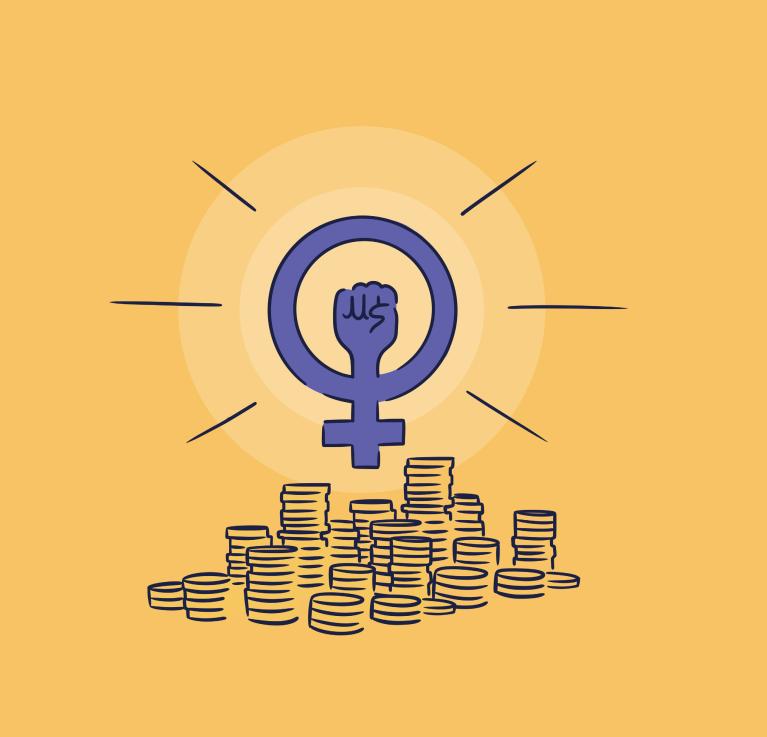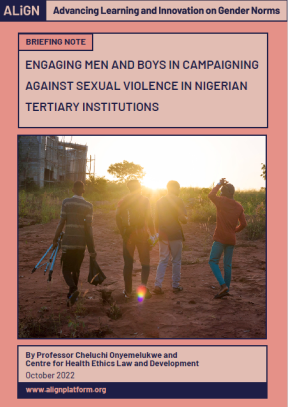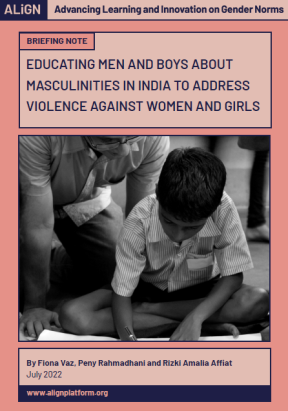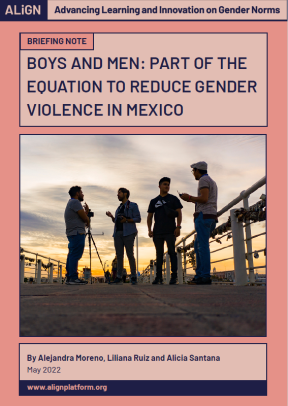- Briefing paper
- 30 Septiembre 2022
The male engagement strategy in Sierra Leone: a feminist analysis
- Author: Aisha Fofana Ibrahim, Susan Shepler
- Published by: ALIGN

Male engagement or involvement, the acknowledgement of the central role of men in gender-based power inequalities, has gained traction in recent years. This study investigates the use of 'the male engagement strategy’ to combat sexual and gender-based violence (SGBV) in Sierra Leone and seeks to understand if these strategies continue to entrench patriarchal power relationships or whether they are gender transformative.
In essence, Ingradoc investigated how male engagement is framed, conceptualised, and implemented at the donor, NGO and community levels in Sierra Leone. Their main finding is that, in Sierra Leone, where patriarchal bargains predominate, a gender-transformative approach could easily have unintended and adverse effects. Through participant observations of trainings and interviews with practitioners, this research found that even though there were positive outcomes in terms of engaging men as active participants in maternal health care and as allies in addressing GBV, the strategy falls short of atually being gender transformative. This is because in the training there is no active promotion of men’s critical reflection or their questioning of the individual practices, institutional dynamics and norms that create and reinforce gender inequalities and vulnerabilities for men and women.
This report is an output from the third round of ALIGN's micro-granting facility which provides organisations and individuals with grants for research and learning. See more about this round of funding.
About INGRADOC
The Institute of Gender Research and Documentation (INGRADOC), earlier known as the Gender Research and Documentation Center (GRADOC), was established in 1992 by the University of Sierra Leone and linked with the Center for West African Studies (CWAS) of the University of Birmingham. It offers graduate courses and a degree in Gender Studies with a feminist focus. Its mission is to develop national human resources for the empowerment of both men and women and to promote peace and social justice nationally and internationally. Over the past 20, INGRADOC has grown in terms of its size, visibility and influence on campus and the wider community and now offers undergraduate, graduate and short courses in all aspects of women and gender studies.
The Institute has embarked on a variety of studies, continues to host academics from other institutions (especially Fulbright Scholars) and has trained the majority of gender experts working in Sierra Leone today. Our graduates can be found in Government ministries and agencies, academic institutions, national and international non-governmental institutions and community-based organisations.
- Countries / Regions:
- Sierra Leone
Related resources
2 November 2020

Briefing paper
2 Noviembre 2022

This study aims to assess the extent to which female-led women's rights organisations involved in the campaign against sexual violence in Nigeria’s tertiary education institutions engage men and…
Briefing paper
4 Julio 2022

Briefing paper
1 Junio 2022

Briefing paper
23 Mayo 2022
